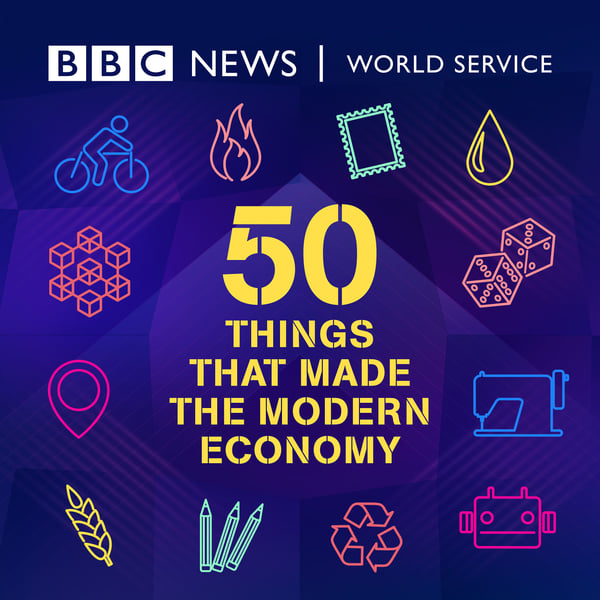Canned food
50 Things That Made the Modern Economy
BBC
4.8 • 2.6K Ratings
🗓️ 16 September 2019
⏱️ 10 minutes
🧾️ Download transcript
Summary
Transcript
Click on a timestamp to play from that location
| 0:00.0 | 50 Things That Made The Modern Economy With Tim Harford |
| 0:15.3 | Play the word association game with Silicon Valley, and your mind is unlikely to go to canned |
| 0:22.4 | food. Silicon Valley stands for cutting-edge technology, |
| 0:28.4 | the old ideas that changed the world. Nobody would say the tin can is cutting-edge technology, |
| 0:35.4 | although the more literal-minded might make that claim for the can opener. |
| 0:40.6 | Yet in its day, canned food was as revolutionary as anything now being pitched by Bay Area |
| 0:47.5 | startups, and its story reveals how surprisingly little some deep dilemmas around innovation |
| 0:54.3 | have changed in the last 200 years or so. |
| 1:01.1 | To start with, how do we incentivise good ideas? There's the lure of a patent, of course, |
| 1:07.9 | or first mover advantage. But if you really want to encourage fresh thinking, offer a prize. |
| 1:15.4 | Self-driving cars are a current example. In 2004, the Defence Advanced Research Projects |
| 1:22.2 | Agency, DARPA, offered a million dollars to the first vehicle to find its way across |
| 1:27.9 | a course in the Mahave Desert. The result was pure wacky races, vehicles caught fire, |
| 1:36.0 | flipped over, crashed through fences, and ground to a halt because they were confused by tumble |
| 1:42.3 | weed. But within a decade, self-driving cars were reliable enough to let loose on public |
| 1:49.1 | roads. The DARPA prize was hardly the first, however. |
| 1:56.5 | In 1795, the government of France offered a prize of 12,000 francs for inventing a method |
| 2:04.6 | of preserving food. It was eventually claimed by Nicola Appere, a Parisian grocer and |
| 2:11.1 | confectioner credited with the development of the Buion or Stock Cube. And less plausibly, |
| 2:18.4 | the recipe for chicken Kiev. Through trial and error, Appere found that if you put cooked |
| 2:24.6 | food in a glass jar, plunged the jar into boiling water, and then sealed it with wax. |
| 2:31.8 | The food wouldn't go off. Why was the French government interested in preserving food? |
... |
Please login to see the full transcript.
Disclaimer: The podcast and artwork embedded on this page are from BBC, and are the property of its owner and not affiliated with or endorsed by Tapesearch.
Generated transcripts are the property of BBC and are distributed freely under the Fair Use doctrine. Transcripts generated by Tapesearch are not guaranteed to be accurate.
Copyright © Tapesearch 2025.

